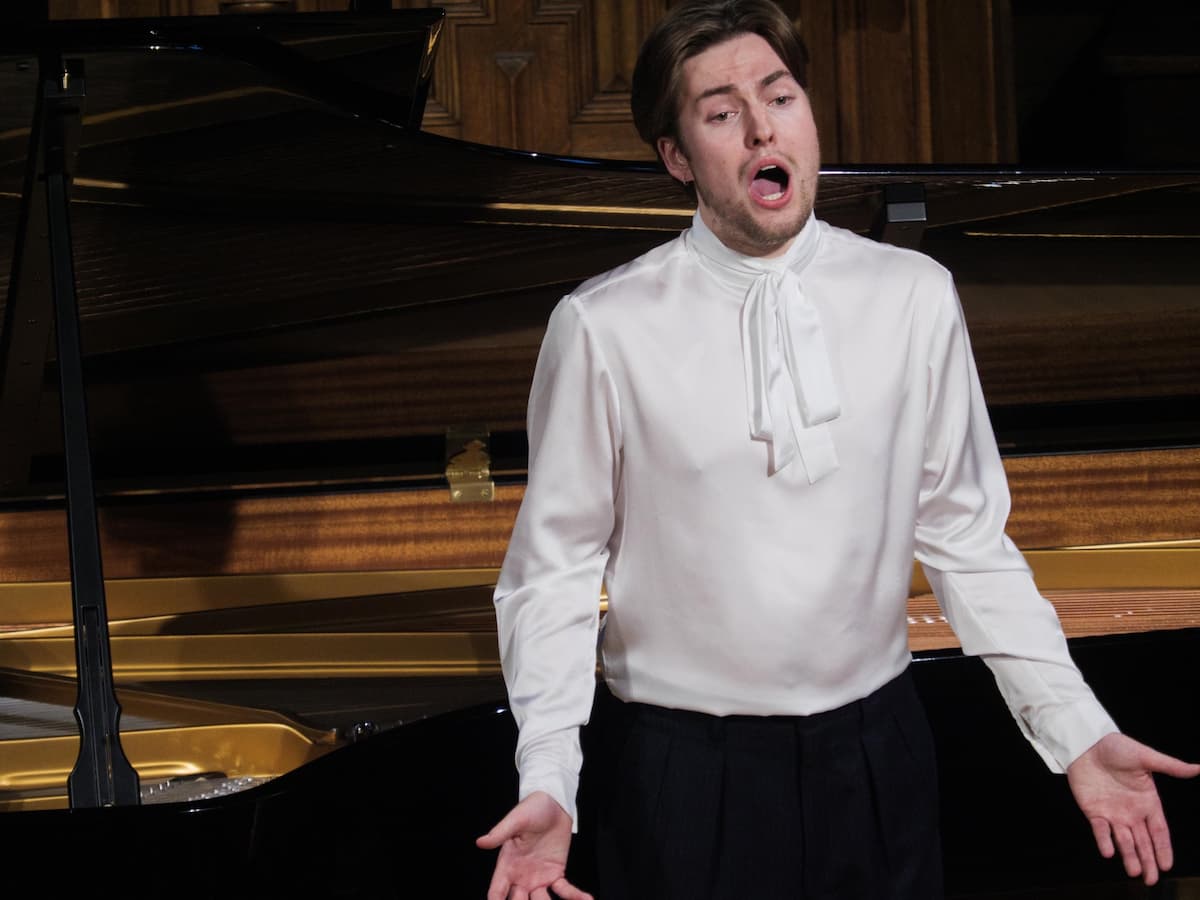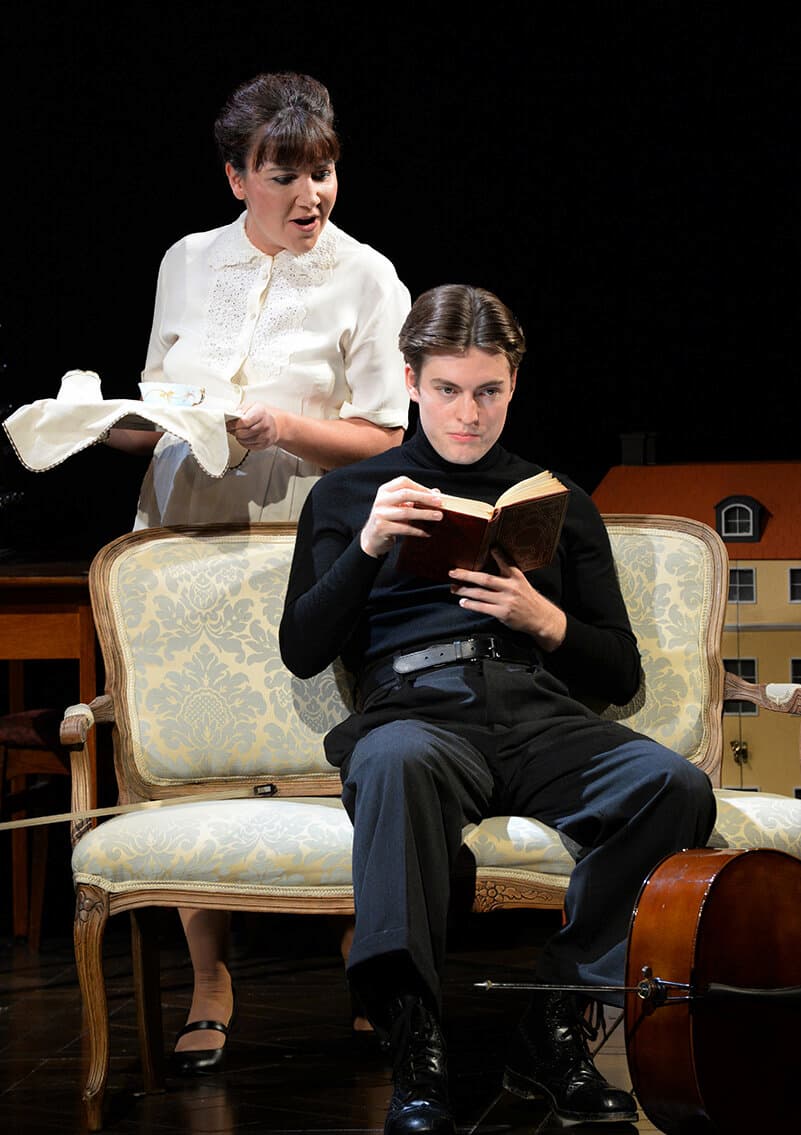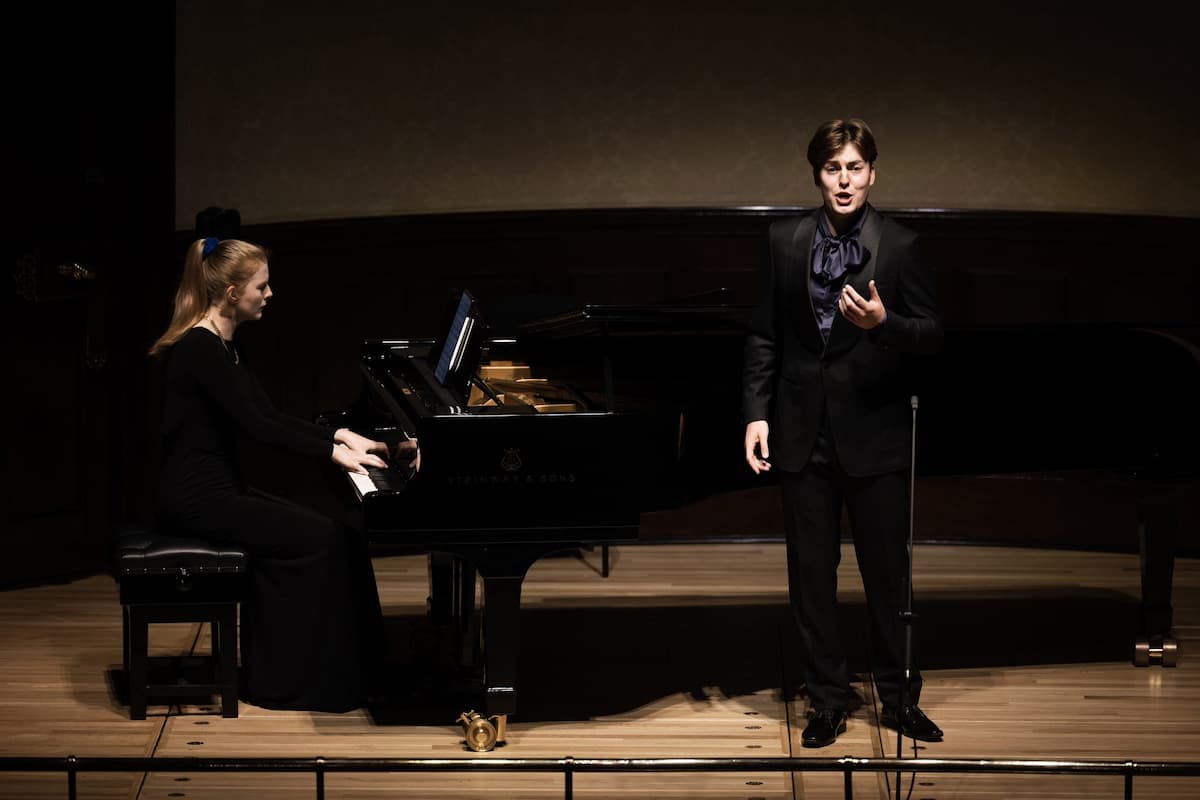‘All I care about is making good music and singing it well’
Young British tenor Laurence Kilsby is no stranger to success: having won first prizes at the 2023 Heidelburger Frühling Festspiele’s “Das Lied”, 2022 Wigmore Hall/Bollinger International Song and 2022 Cesti competitions, he is currently finishing up a season at the prestigious Academy of the Opéra de Paris, where he is exploring more operatic work alongside his engagements as a recitalist which are already earning him an international reputation as ‘a young singer to watch’ (The Times).

Laurence Kilsby © Studio Visuel/Heidelberger Frühling
Beginning his musical life as a chorister in Tewkesbury Abbey’s Schola Cantorum (during which time he won BBC Radio 2’s Young Chorister of the Year award), Laurence went on to study at London’s Royal College of Music and the Curtis Institute of Music and now bases himself in Paris for his work at the Opéra, alongside frequent engagements around Europe.
Laurence Kilsby Sings Bach’s Erwäge (St. John Passion)
How has the last year in Paris been?
I think there are about 12 or 13 singers in the studio, and there’s a really nice feeling of collaboration between us.
Because there are also musicians in the studio – a string quartet plus double bass, and four pianists who work as coaches – there are lots of great opportunities for us to collaborate and to work with the regular coaches who come in, which is really nice.
It’s something I wanted coming into a studio because I’m still a young singer and want to very much learn and be in an educational environment where I’m trying stuff out and singing through roles that I might sing in a couple of years.
In Paris, it feels like there’s such a great buzz around classical music. The Philharmonie’s always really full, even for our Young Artist recitals in the amphitheatre below the Bastille.
Have you discovered anything new that’s excited you during your year there?
For sure. Because I had come from doing early music and singing a lot of Bach, doing lots of St John Passions and recitals, which I adore, starting to delve into the opera world and sing through a lot of Mozart roles is really exciting.
I’d love to do those at some point in the future – Ferrando in Così Fan Tutte, Don Ottavio in Don Giovanni, Tamino in The Magic Flute – it’s definitely sparked something.

A Little Night Music (Opera North) © Sharron Wallace
Next year I’m also doing a new opera comique with Ensemble Pygmalion, a pastiche of Schubert arias and songs with orchestration. Because I love doing lieder it’s really nice to be doing something that’s from the Romantic era but with orchestra. It feels like I’m growing nice and slowly. I’m not rushing into anything.
You need to give a voice time, and for me as a light lyric I definitely don’t want to push into heavier repertoire if I don’t need to, and that’s not what my voice is right now.
When you hit your thirties your voice can really change, maybe become more dramatic or high, so I think it’s about just maintaining a healthy technique and singing naturally and healthily and just enjoying the repertoire that you’re singing at the time.
I’m very excited about the stuff I have planned that’s very much within my capabilities: I’m not thinking about a project and worrying about getting through it. All I care about is making good music and singing it well.
I love taking risks, particularly in recital settings where you have that intimate space to play with colours in your voice. You’re having a direct conversation with the audience, but even then I’m still trying to sing healthily and do all the right things.
Laurence Kilsby and Guillem Aubry Perform Mozart’s Un’aura amorosa (Così fan tutte)
Looking to the future, are you looking to integrate more opera into your work?
I think I’ll always keep song, I’ll always want to do it. There are so many wonderful recital venues all around the world, and my pianist Ella O’Neill and I are brainstorming all these programmes. It’s one of my favourite, putting together a programme: finding out what works emotionally, what has a narrative journey, and shining a light on composers that aren’t often performed.
Of course, I love opera, and because I did a lot of musical theatre at school and trained as a dancer I love being on stage and I love the sets, the costumes, and the theatre atmosphere, so I want to have a nice balance between doing those opera productions and doing recitals.
How did you find your way to singing?

© Benjamin Ealovega
I’m fortunate in that I came from a chorister background. I was born in Oxford and grew up in a small village in Gloucestershire, and when I was very young I sang in a local choir in the Cotswolds.
I really enjoyed singing in the choir. We went on a school trip to Gloucester Cathedral to watch evensong, and I thought the boys who were singing looked so professional, and they were singing incredibly beautiful music and seemed so pro about it, I thought ‘I’d love to look that cool’ – to me it was cool!
That gave my mum an idea that I should try for a couple of choirs. I was already 9 turning 10 at the time and a lot of places wouldn’t accept me because they usually take on choristers aged 7 or 8, but I sang for Tewkesbury Abbey and started when I was 10 and did four years there.
I really got into music then and was obviously surrounded by a lot of lovely musical people, and so when my voice lowed at age 14 I continued with my singing teacher, who gave me lots of classical songs and arias. I was doing musicals at school, lots of singing, and I loved it, and so it seemed like the obvious thing to do when I was 18: to go to London and try singing and specialise in it.
I’m so lucky that my parents were always so supportive. I was always convinced that I had something to say and that I could do it.
There are so many amazing young singers here in Paris, and meeting other singers and working with them has this great energy – it’s such a nice thing to be part of.
For more of the best in classical music, sign up for our E-Newsletter





A new, beautiful voice is always welcome, and especially one that’s interested in exploring lesser-known works, but I’m wondering if any voice can rise above the late Anthony Rolfe-Johnson in terms of beautiful, clear-as-a-bell tonality and pathos. His rendering of songs from A Shropshire Lad and some of the Britten songs remain some of the most exquisite music ever recorded.
Impressed with Laurence’s performance in the St John arias, his musicality and ease of production put an end to the old belief that the’Erwege’ aria can be a tenor’s graveyard piece.
Beautifully sung.